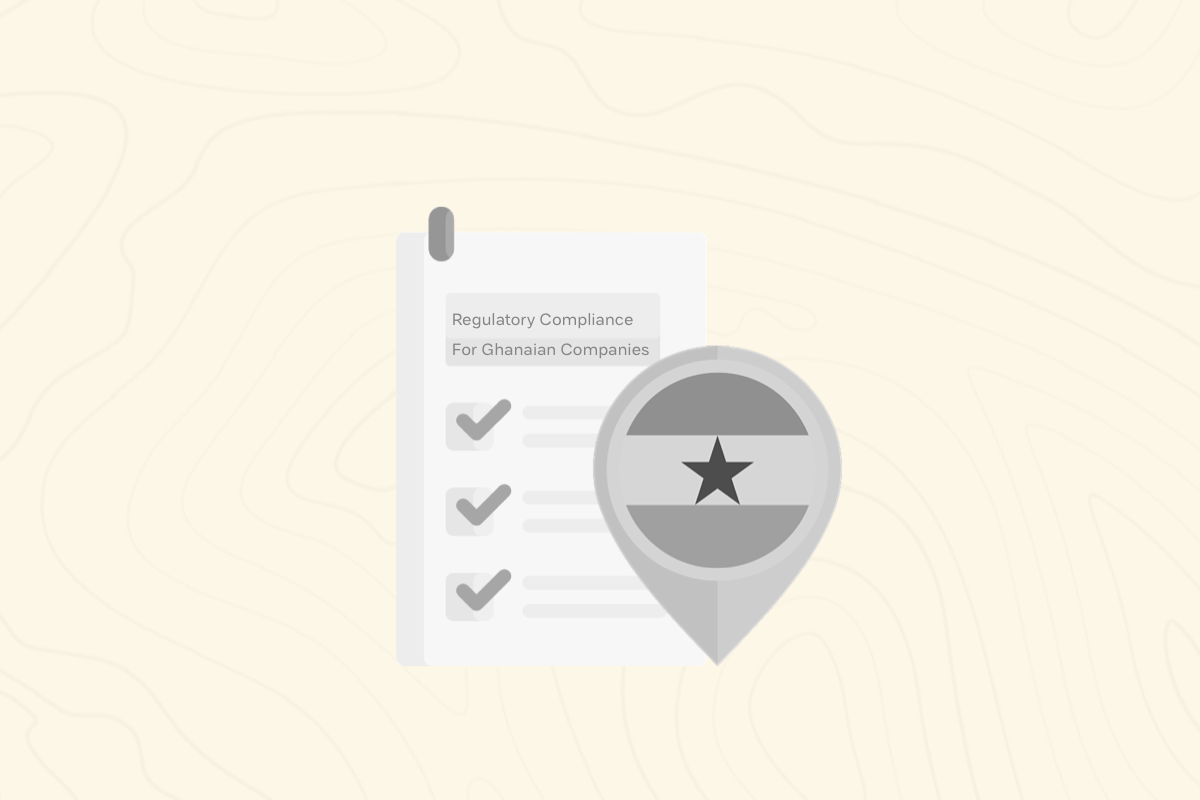Before we get started, you can read about the background on navigating regulatory compliance in Egypt to gain more context on the regulatory environment in Egypt. Some of the financial compliance requirements for companies registered in Egypt include the following:
1. Accounting standards and financial reporting requirements
All Egyptian businesses, both publicly traded and privately held (listed and unlisted), are required to prepare financial statements in accordance with Egyptian Accounting Standards and to have those financial statements audited by a Certified Public Accountant in accordance with Egyptian Auditing Standards under the Corporate Law of 1981 and the Capital Market Authority Law of 1992.
Every company is required by law to give an audit report, a balance sheet, an income statement, and a cash flow statement to shareholders at their annual meeting. Following its initial public offering, the company is required to provide a thorough report on its operations, including development and results, every three months.
Every year, at the latest one month after the fiscal year ends, a progress report and a report of the accounts (before certification) must be sent to the Capital Market Authority. Two reference periodicals, at least one of which must be in Arabic, must publish the certified accounts listed in Official Schedule 1.
2. Tax compliance and filing obligations
The financial statements of companies should be prepared in conformity with the EAS and this serves as the primary foundation for calculating the annual net taxable income. All businesses are expected to file their corporate income tax returns within four months after the end of their fiscal year. If a company’s fiscal year ends on December 31, the tax return must be filed by the end of April of the following year. Self-assessment is used to prepare the tax returns, the taxpayer determines the taxes owed and includes payment with the tax return to be submitted to ETA. Other returns such as VAT are required to be submitted monthly.
3. Anti-money laundering (AML) and counter-terrorism financing (CTF) regulations
The Egyptian government created a domestic anti-money laundering policy in 2002 in addition to the global AML policy to formally combat financial crime. The Egyptian government passed the Anti-Money Laundering Law (CML) in 2002. Consequently, it is unlawful to launder money obtained through drug trafficking, prostitution, terrorism, the sale of guns, organized crime, etc. in Egypt.
Under the AML Act, the Money Laundering Combating Unit (MLCU) was created in 2002. MLCU is the financial intelligence agency responsible for investigating suspicious transaction reports from financial institutions or other organisations. The MLCU is an independent unit within the Central Bank of Egypt (CBE). The Egyptian Financial Supervisory Authority (EFSA) is also an anti-money laundering regulator.
Financial Regulatory Authorities in Egypt
The Central Bank of Egypt (CBE) is the country’s central bank.
The Egyptian Financial Supervisory Authority (EFSA) regulates the non-banking financial markets sector.
The Financial Regulatory Authority (FRA) regulates Egypt’s financial services sector.
The Personal Data Protection Centre (the “Centre”) oversees and enforces compliance with the Data Protection Law.
Conclusion
Complying with the different and numerous regulatory compliance checklists might be tasking for foreigners operating in Egypt, but with Norebase, you can stay on top of this regulatory compliance. We have a software called Autocomply that provides prompt updates on new regulations and compliance obligations.
Join the waitlist here




One thought on “Financial Compliance Requirements for Companies in Egypt”